Zimbabwe President Robert Mugabe appears in public 1st time since apparent military coup
The leader showed no signs of relinquishing his decades-long grip on power.
— -- Zimbabwe's President Robert Mugabe showed no signs of loosening his iron grip on power Friday as he appeared in public for the first time since the military apparently took control this week.
Clad in blue and yellow academic robes with a cap, the 93-year-old leader presided over and delivered a speech at a university graduation ceremony in the country's capital, Harare.
Zimbabwe's military told the state-owned Herald newspaper on Friday that it is "engaging with the commander-in-chief President Robert Mugabe on the way forward and will advise the nation of the outcome as soon as possible."
The military added that "significant progress has been made in their operation to weed out criminals around President Mugabe." Those sought had been "committing crimes that were causing social and economic suffering in Zimbabwe." Some have been arrested while others remained at large, the military told the newspaper.
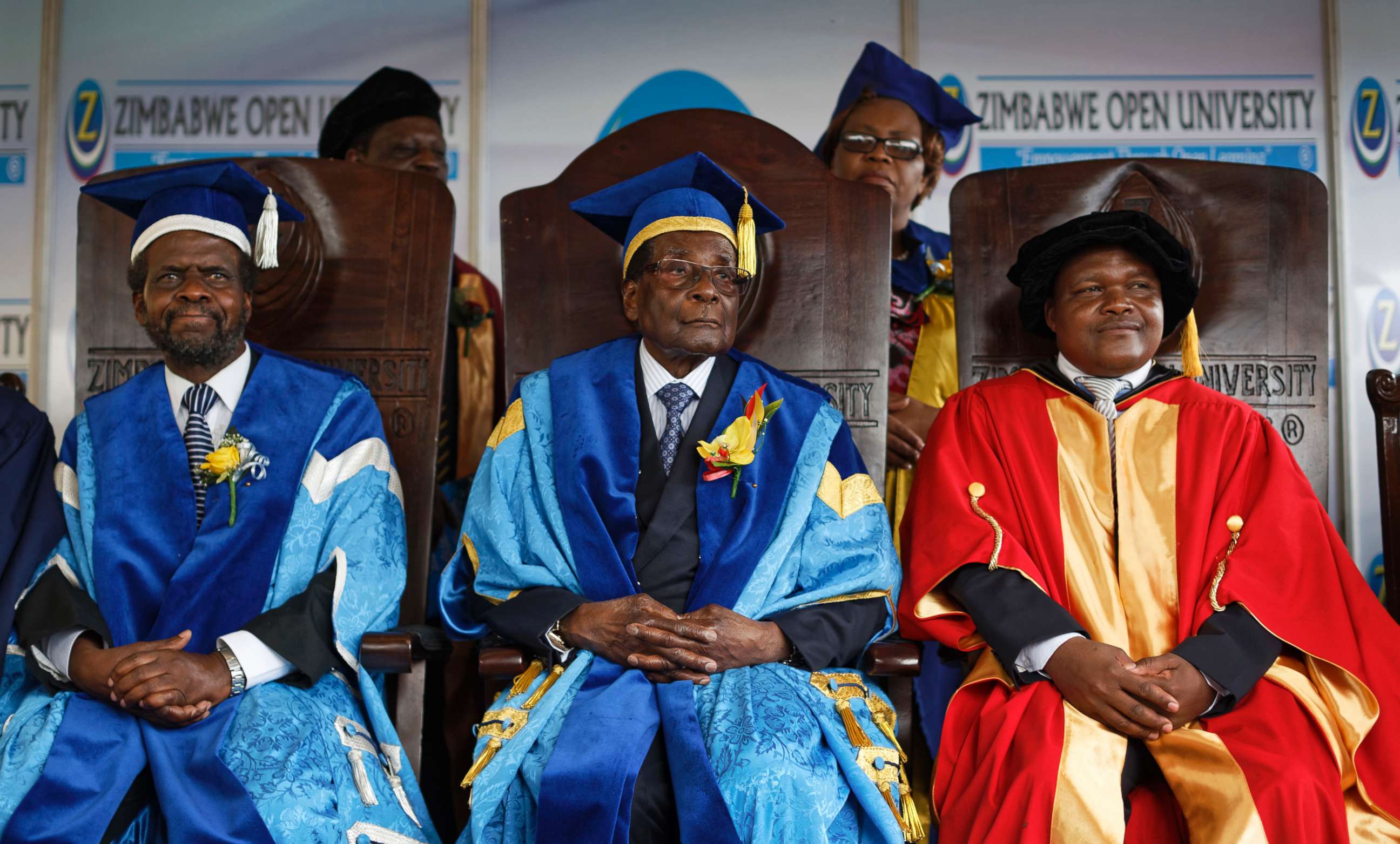
Life seemed to carry on as usual in downtown Harare, with the exception of increased military presence. Residents there told ABC News that businesses were open and the streets were calm, though soldiers were stationed in certain areas and tanks blocked some roads on the outskirts of the city center.
An American citizen, who lives in Harare and spoke to ABC News on condition of anonymity, said she still feels safe in her neighborhood. In fact, she discerns an overall sense of "subdued excitement" from Zimbabweans and other residents about the potential military intervention, she said.
"If you mention this to anyone in passing, there's a smile that creeps on their face and a little giggling maybe too," she told ABC News in a telephone interview Thursday night. "People are hopeful that finally, after all these years, Mugabe will be at the end of his reign."
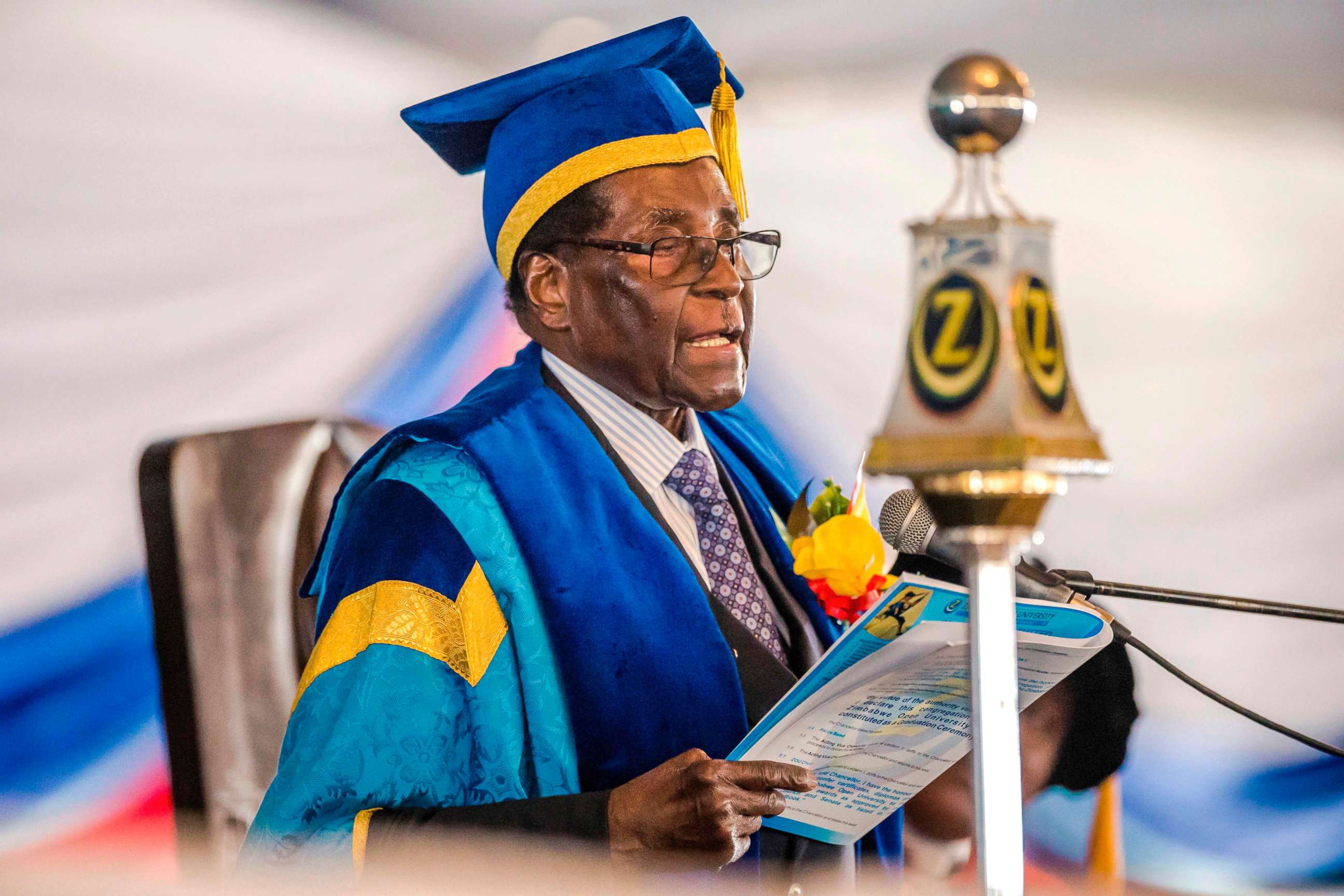
The first signs of a military takeover emerged Tuesday as armored vehicles were deployed near the capital, one week after Mugabe fired his deputy and longtime ally, Vice President Emmerson Mnangagwa, and accused him of scheming to take power, including through witchcraft.
An established Zimbabwean journalist, who spoke to ABC News on condition of anonymity Tuesday night, said members of the military marched inside the state broadcaster's headquarters and told employees there to not be afraid, that "we are here to protect you" and to continue their work as usual.
The U.S. Embassy in Zimbabwe issued an advisory Tuesday night, urging all employees to stay home the following day and warning American citizens in the southern African nation to shelter in place "as a result of the ongoing political uncertainty."
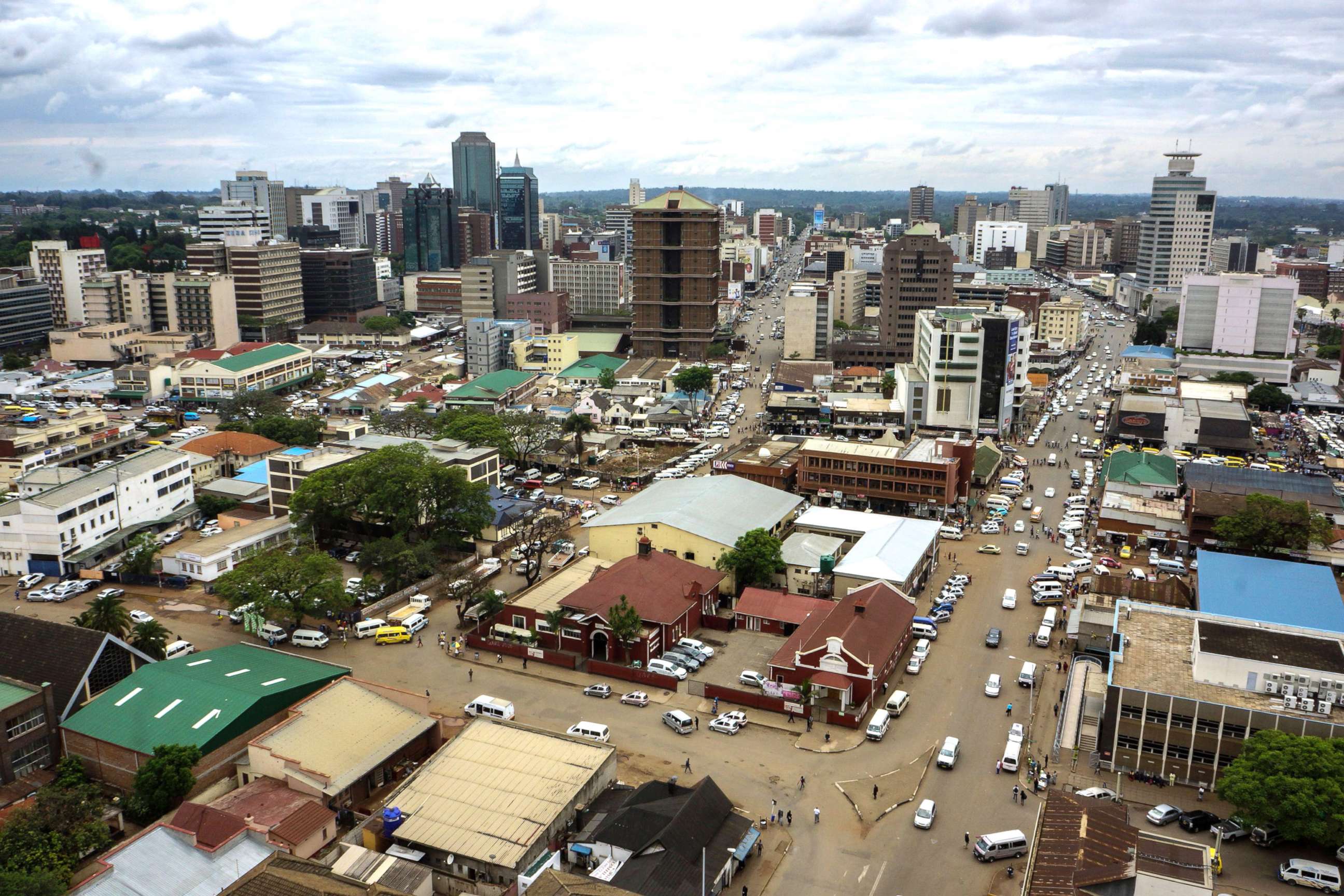
Zimbabwe's army addressed the country on state-run media Wednesday morning, vehemently denying speculation this was a coup d'etat and assuring citizens the president and his family are "safe and sound."
"We are only targeting criminals around him who are committing crimes that are causing social and economic suffering in the country, in order to bring them to justice. As soon as we have accomplished our mission, we expect that the situation will return to normalcy," Maj. Gen. S.B. Moyo, spokesman for the Zimbabwe Defense Forces, said in a statement on the state broadcaster.
"To both our people and the world beyond our borders, we wish to make it abundantly clear that this is not a military takeover of government. What the Zimbabwe Defense Forces is doing is to pacify a degenerating political, social and economic situation in our country, which if not addressed may result in a violent conflict," he added.
Moyo urged other security services to "cooperate" with the army "for the good of the country," and warned that "any provocation will be met with an appropriate response."
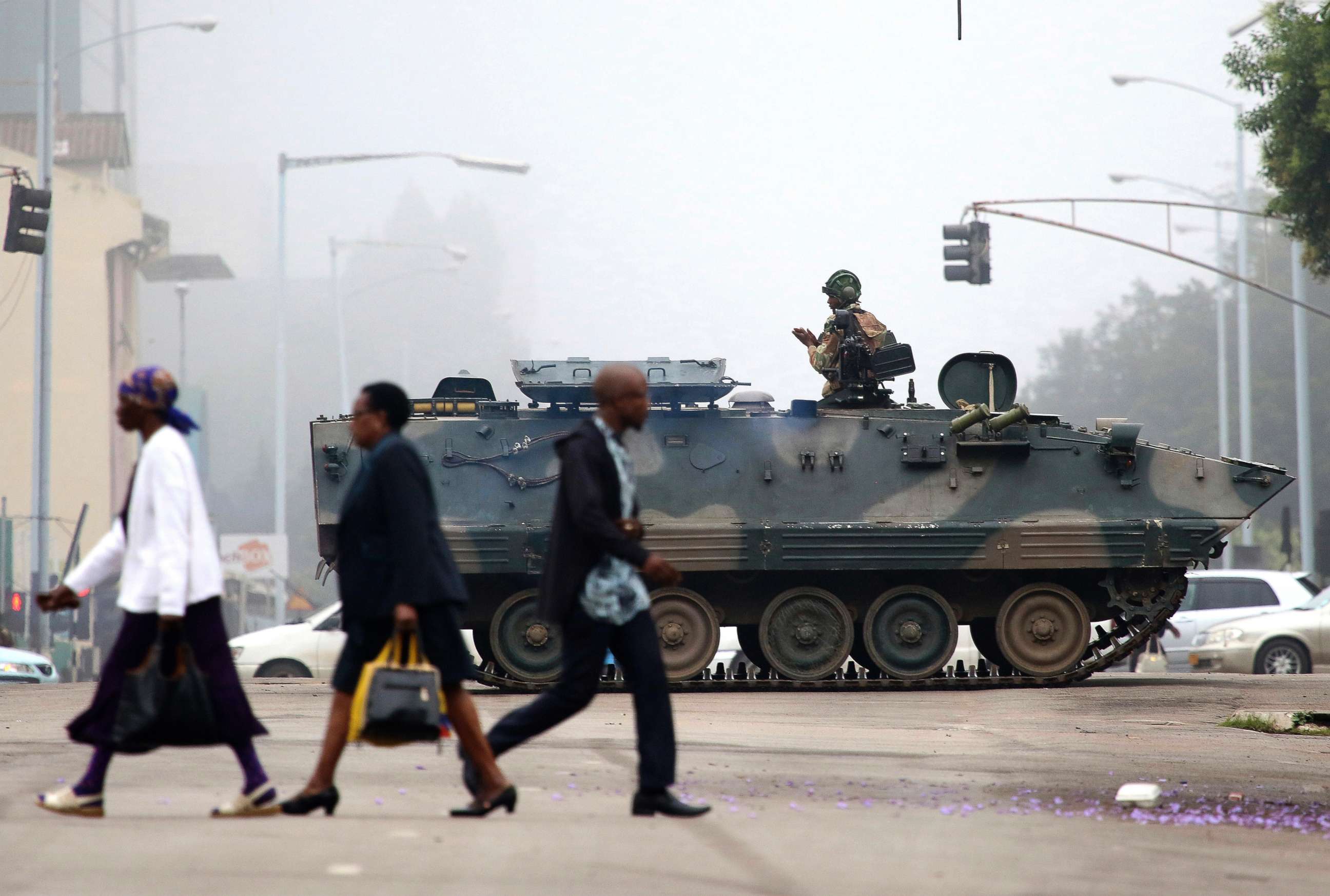
As the political turmoil continued to unfold, it remained unclear whether Mugabe was still in power.
The president of neighboring South Africa, Jacob Zuma, said he spoke with Mugabe on Wednesday morning, who told him he was "confined to his home but said that he was fine." Zuma is sending "special envoys" to meet with Mugabe and the Zimbabwean army "in light of the unfolding situation," according to a press release from the South African presidency.
The whereabouts of Mugabe's wife were still unknown Friday; though journalists told ABC News she's believed to be with her husband under house arrest at the presidential palace in Harare.
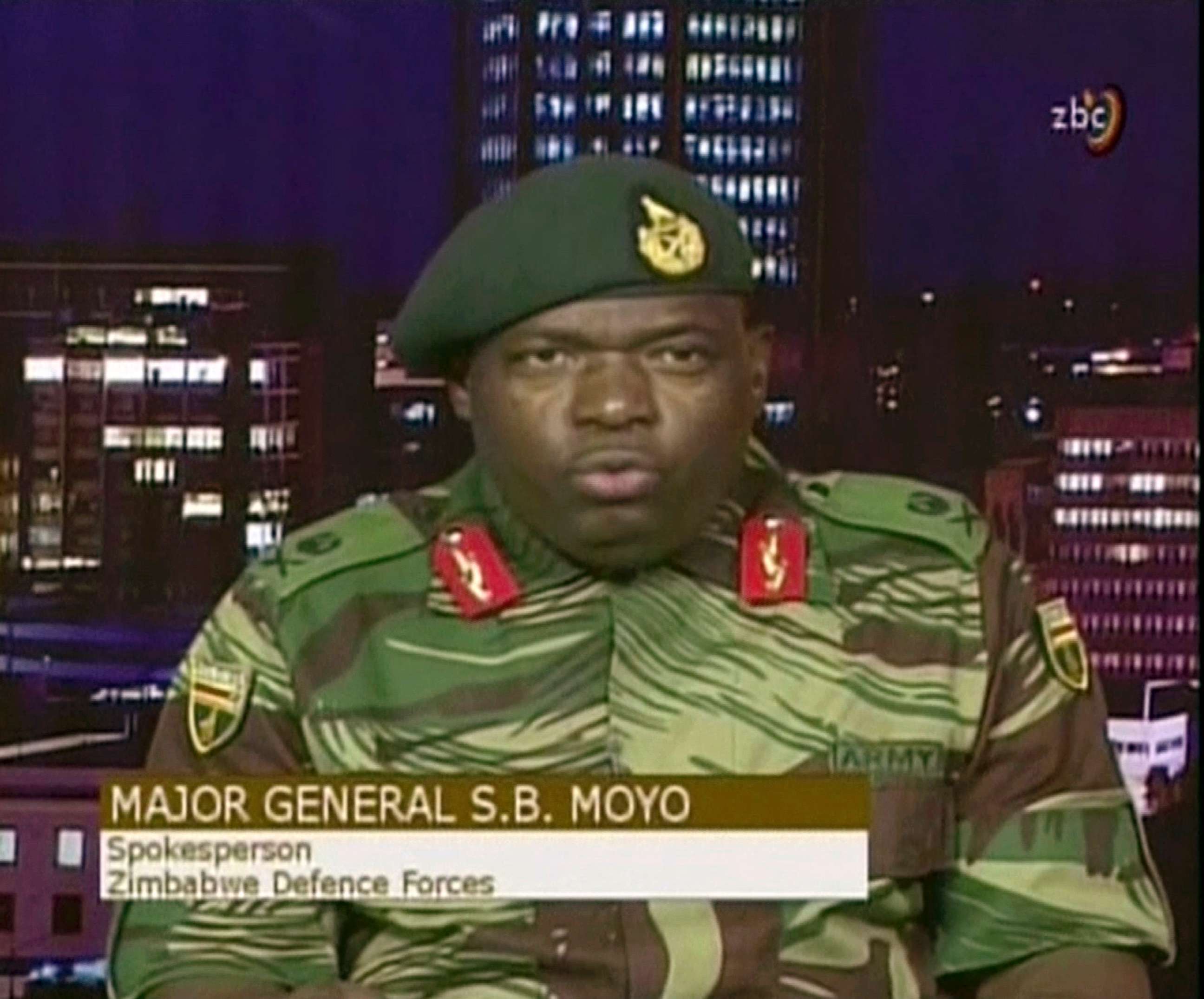
It's uncharted territory for Zimbabweans. Mugabe has led the country since its independence in 1980, making him the world's oldest head of state. In December last year, Zimbabwe's ruling party ZANU-PF confirmed Mugabe as its sole candidate for the 2018 election, despite concerns over his age and health.
Mugabe is still revered by some Zimbabweans as a liberation war hero; though many have come to view him as an avaricious autocrat who turned Zimbabwe from being the "breadbasket of Africa to the basket case of Africa," said Alex Rossi, senior correspondent at Sky News
Zimbabweans have seen the economy expand and contract under Mugabe's rule. In recent years, the economy has suffered from rampant corruption, mounting debt, food shortages, a collapsed currency and a deteriorating investment climate.
"Some people you speak to are quite optimistic, they’ll be quite glad to have a change," Rossi told ABC News in a telephone interview from Harare. "So people are kind of optimistic that this may actually transition into something that delivers a better deal economically for them and their families."
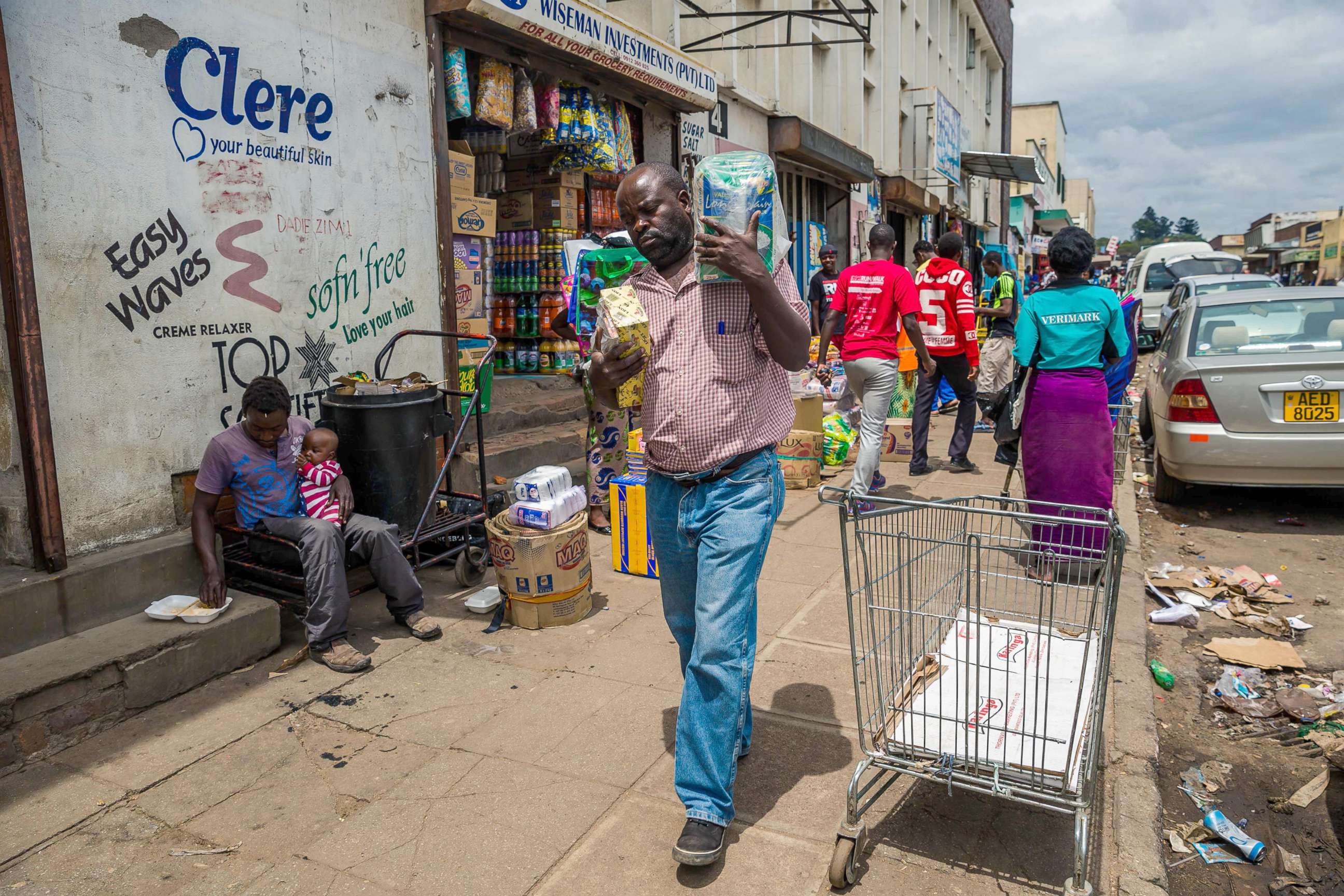
While hosting discussions with African foreign ministers and their representatives in Washington, D.C., U.S. Secretary of State Rex Tillerson on Friday described the potential transition as "an opportunity" for Zimbabweans.
"Zimbabwe has an opportunity to set itself on a new path –- one that must include democratic elections and respect for human rights," Tillerson said. "Ultimately, the people of Zimbabwe must choose their government. In our conversations today, we have an opportunity to discuss concrete ways that we could help them through this transition."
With demonstrations set to take place in Harare over the weekend, the U.S. Embassy in Zimbabwe continued to urge American citizens there to "remain safely at home or in your accommodations as much as possible."
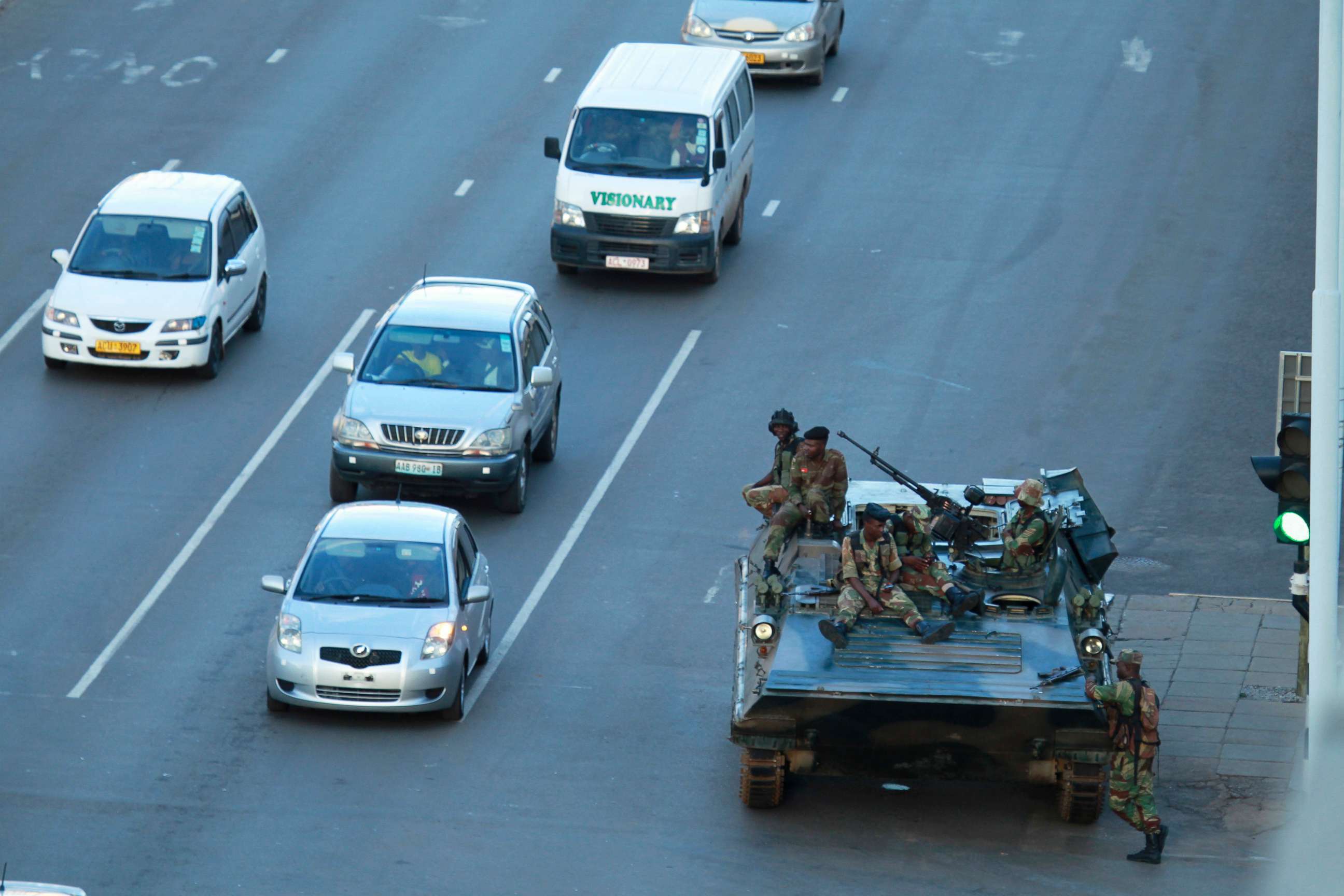
Rossi told ABC News the coming hours and days will be "crucial" in how the political uncertainty in Zimbabwe will ultimately unfold.
"I think what is increasingly clear is that Robert Mugabe’s 37 years of controlling this country with an iron fist have come to an end. The question is, how will it end?" Rossi told ABC News. "Will it end in a peaceful, bloodless coup or will it morph into something much worse, and we just don’t know that at the moment.
"The more that clock ticks round, the darker things look," he added.
ABC News' Benjamin Gittleson, Dennis Powell and Sohel Uddin contributed to this report.




